
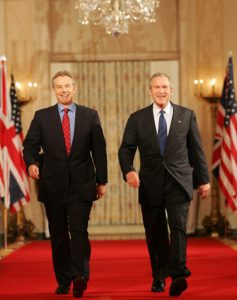
In 2003, shortly after the the Iraq War began, British PM Tony Blair delivered a speech to the US Congress. In this speech, he announced that the use of history in developing foreign policy was defunct. For him, at the beginning of what would become the most controversial and criticised war of a generation, there had never been a time when ‘a study of history provides so little instruction for our present day’.
Getting Iraq Wrong
But when Iraq descended into chaos, historians and commentators were quick to ask how Britain had policy-makers got post-war planning so wrong. Britain had maintained close links with Iraq through the 20th century. It had, for example:
- Been responsible for the founding of the state of Iraq in 1919
- Established Iraq’s Hashemite monarchy
- Governed the country under a League of Nations mandate until 1932
- Intervened against a coup in 1941
- Maintained military occupation until 1947
- Kept the country as a satellite state until 1958
- Intervened again in 1991
How then, with all of this experience at its disposal, had the government failed to understand the complexities of Iraq? British policy-makers were soon accused of failing to learn the lessons of history.
The allegation was generic. The devastating events in Iraq left the public angry and sceptical of Whitehall in general. What was little known at the time, but has since been revealed through declassified documents, is how much diplomats, service personnel and officials had learned from the past. Many of them warned Ministers of potential repercussions to the Iraq invasion. A number even predicted the events that occurred after the fall of Saddam Hussein.
Learning from History
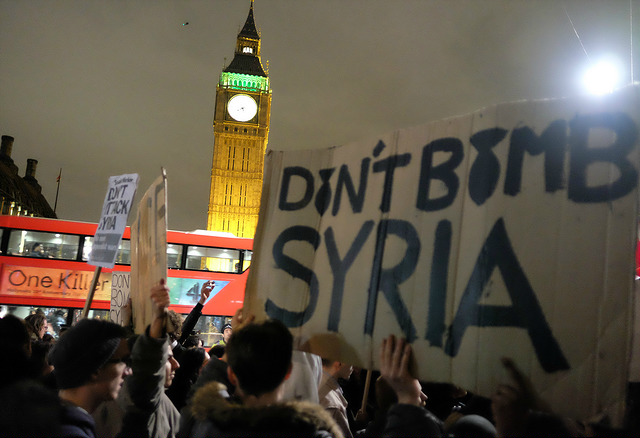
In fact, the Foreign and Commonwealth Office, Ministry of Defence and intelligence agencies have long sought to learn from history. The FCO first established a Historical Section 100 years ago – in 1918 – to support the use of history in advising officials. Similarly, the Ministry of Defence teaches its service personnel about military history through staff colleges, battlefield studies and staff rides to locations of past operations. In addition, there has been an increasing focus upon the idea of ‘lesson learning’ from more recent experiences. During the wars in Iraq and Afghanistan, the lesson-learning agenda was rapidly increased. Officials were keen to ensure that lessons were learned from these most recent operations.
Since Iraq, politicians have denounced the claims by Blair in Congress and begun to acknowledge and emphasise learning from history. The Iraq Inquiry, for example, was conducted under the terms of reference to ‘establish, as accurately as possible, what happened and to identify the lessons that can be learned’. Similarly, the idea of learning lessons has become frequently used rhetoric. ‘Lessons from Iraq’ has been invoked as explanation for foreign policy decisions from the Arab Spring and Afghanistan to Libya, Syria and Yemen.
The Future of History
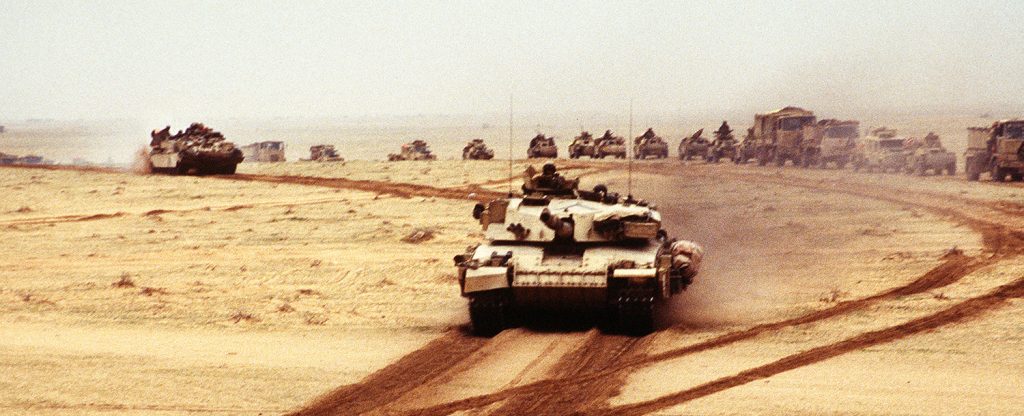
Yet there is still much to be done. Whilst it is clear that some lessons have been learned from Iraq, the process of learning from history cannot end. In 2016, the House of Commons Foreign Affairs Committee made clear ‘the Government has yet to appreciate the lessons from our experience in Libya’. Similarly, the implementation of lessons from the Iraq Inquiry report has not been debated in Parliament. The distractions of the EU referendum and the resignation of David Cameron mean that lessons risk being quickly forgotten.
Learning from history is not easy. But for Whitehall , turning lessons from history into policy depends on the relationship between officials and ministers. As the Permanent Under Secretary at the Foreign Office, Paul Gore Booth, noted in a response to a request to a report on the lessons from the 1956 Suez crisis:
The lesson to be learned from Suez was a simple one. It was this: if Ministers consulted their officials and then rejected their advice this was perfectly proper and might on many occasions give them the right answer. If, however, a government undertook operations by a process of deliberately refraining from taking official advice, or keeping officials informed, then the result in due course would be disastrous.
By Louise Kettle

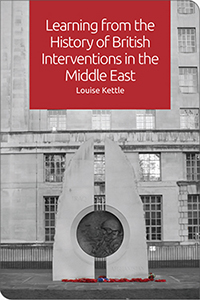
Louise Kettle is Assistant Professor at the School of Politics and International Relations at the University of Nottingham. She has won several awards for her work including from the British International History Group, the Royal Historical Society and the British Library.
Learning from the History of British Interventions in the Middle East questions what lessons – if any – the British government has taken from its military interventions in the Middle East, from the 1950s to the 2016 Iraq Inquiry report. It draws on a wealth of previously unseen documents, sourced by Freedom of Information requests, together with interviews with government and intelligence agency officials.
Image credits
President George W. Bush and Prime Minister Tony Blair of Great Britain. White House photo by Shealah Craighead. Source: https://georgewbush-whitehouse.archives.gov/index.html
‘Don’t bomb Syria’ by Alisdare Hickson. CC BY-SA 2.0. Source: Flickr.
‘ A British Challenger main battle tank moves along with other Allied armor during Operation Desert Storm.’ by PHC Holmes. Source: Wikimedia Commons.


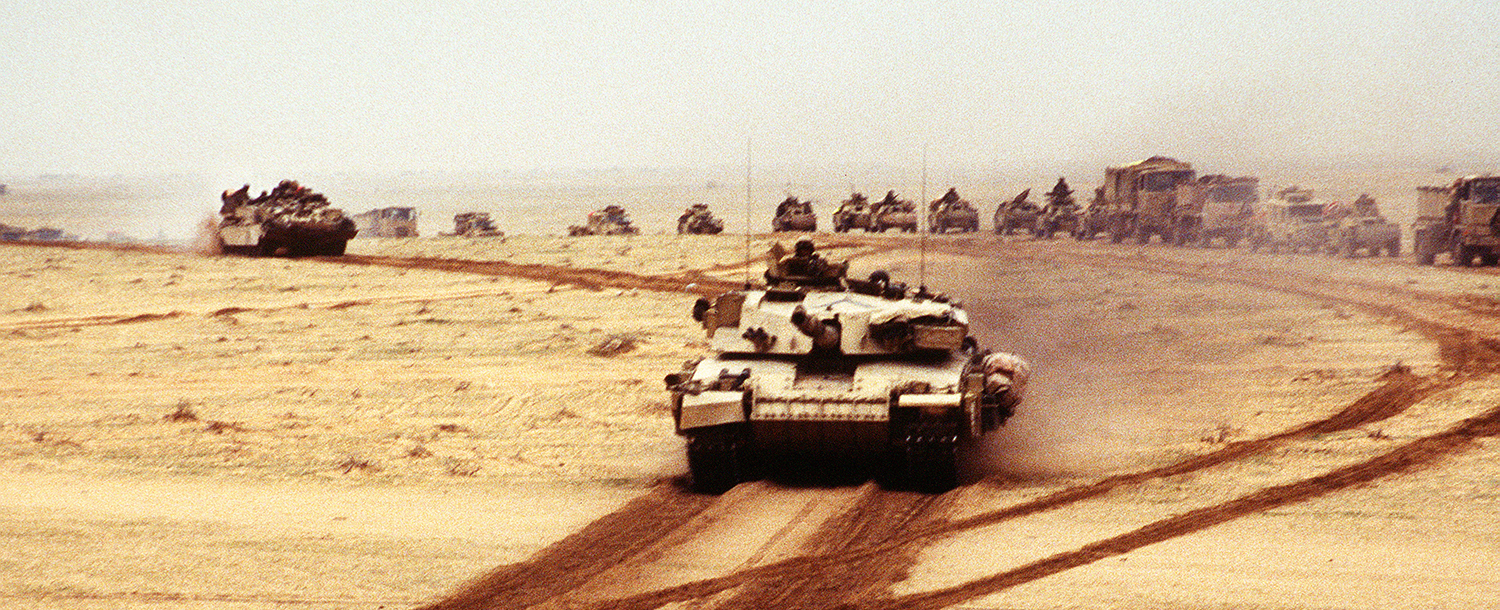

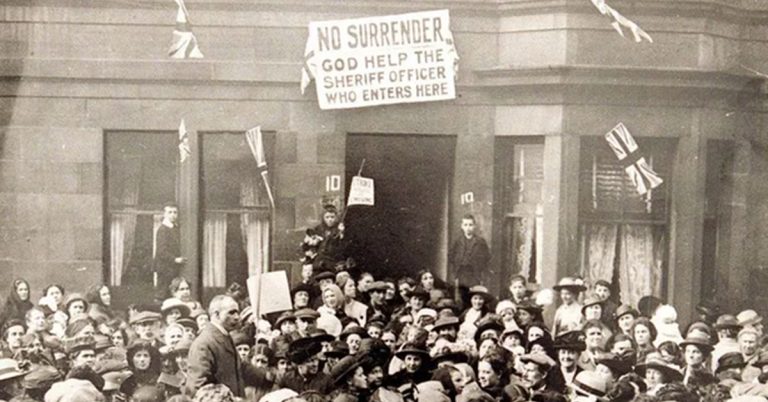

Each post on your Military History blog is a learning experience. Thank you for your meticulous research and storytelling!